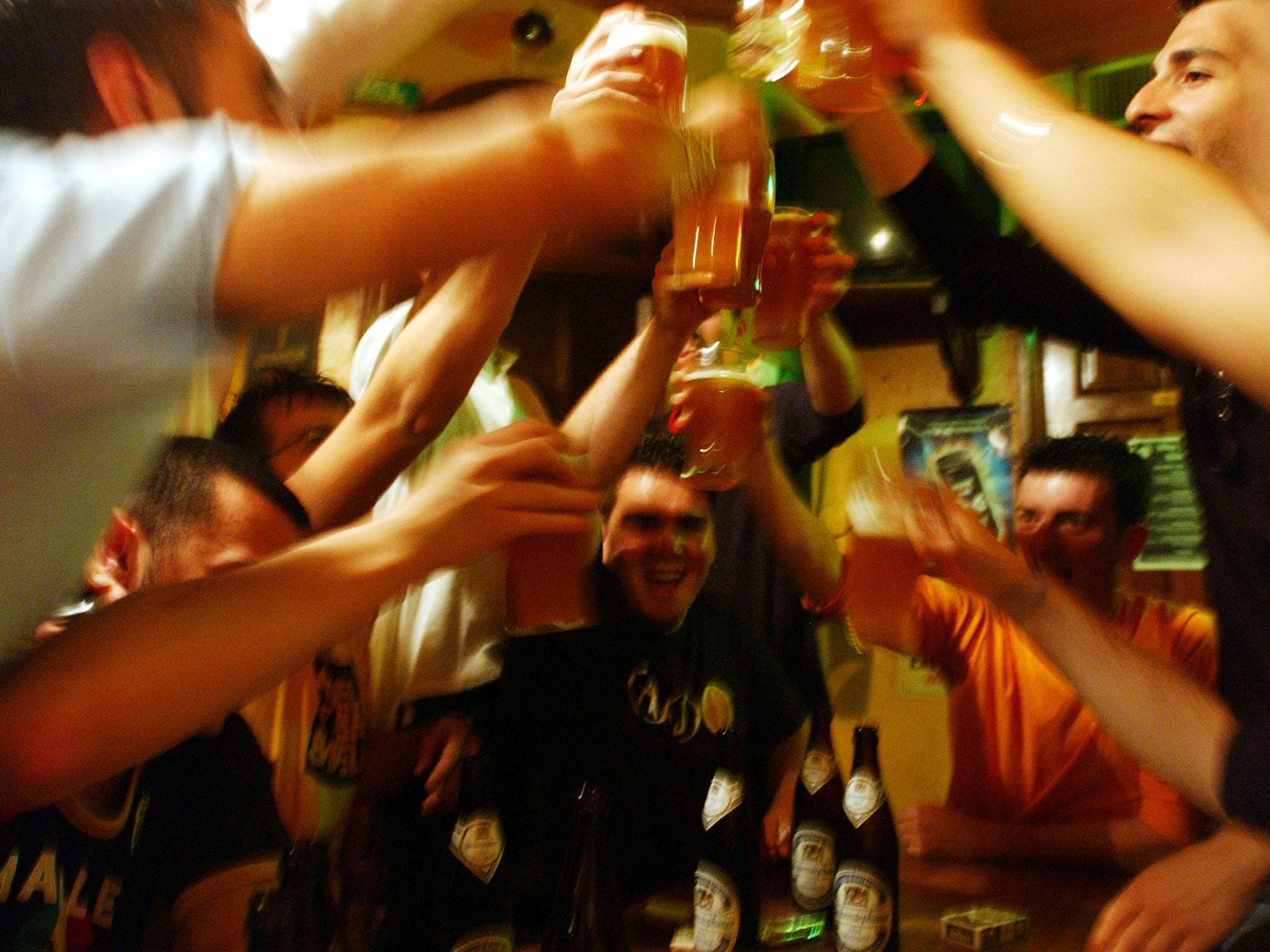Men hate the extreme rituals associated with stag dos, according to new study
Participants bow down to peer pressure despite seemingly feeling scared and degraded, research suggests

Your support helps us to tell the story
From reproductive rights to climate change to Big Tech, The Independent is on the ground when the story is developing. Whether it's investigating the financials of Elon Musk's pro-Trump PAC or producing our latest documentary, 'The A Word', which shines a light on the American women fighting for reproductive rights, we know how important it is to parse out the facts from the messaging.
At such a critical moment in US history, we need reporters on the ground. Your donation allows us to keep sending journalists to speak to both sides of the story.
The Independent is trusted by Americans across the entire political spectrum. And unlike many other quality news outlets, we choose not to lock Americans out of our reporting and analysis with paywalls. We believe quality journalism should be available to everyone, paid for by those who can afford it.
Your support makes all the difference.Men do not enjoy the debauchery or the extreme rituals and humiliation associated with most modern stag dos, according to a new study.
A traditional pre-wedding stag do now often involves excessive drinking and ritual humiliation. The report, written by Daniel Briggs from Madrid University and Anthony Ellis of Salford University, found that men bow down to peer pressure despite feeling scared and degraded.
After looking at a series of stag dos across Eastern Europe, England and a Spanish Island, the researchers concluded men would often go along with the plans just to keep up with others in the group.
The study, which was published in the journal Deviant Behaviour, claims men on the stag do are “performing” a role rather than actually enjoying the event.
Dr Ellis, one of the authors of the study, said many feel as though they would be missing out if they didn’t join in.
"We found this palpable feeling that people felt they had to enjoy themselves and if they didn't enjoy themselves they were missing out, even if what they were actually experiencing was quite frightening,” Dr Ellis told The Telegraph.
"People told us that they had had quite troubling experiences and the general atmosphere is one of intense pressure to over-consume."
The report suggests that men reproduce exaggerated aspects of their behaviour that is expected of them in an attempt to have a story to tell in later life.
Join our commenting forum
Join thought-provoking conversations, follow other Independent readers and see their replies
Comments